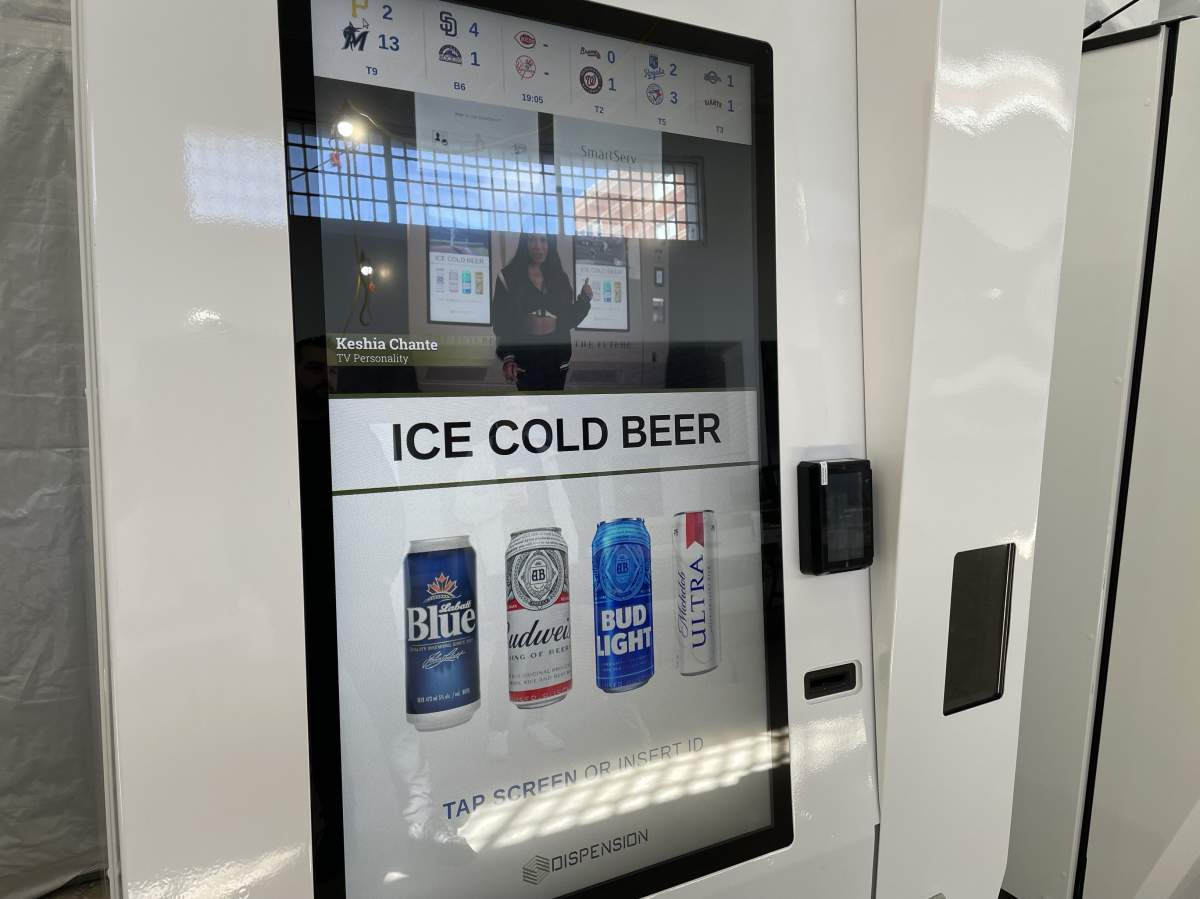The next beer you get at a sports game could be one from a vending machine. At least, that’s the hope of Nova Scotia company Dispension — whose owners are working to get automated beer vending machines into stadiums across the country.

A kiosk will scan the patron’s government-issued photo ID and verify whether or not they’re eligible to buy the product before cracking and dispensing the can.
Settings can be changed to limit the amount of alcohol sold, and the company is working on biometric technology to detect impairment.
The company has already beta-tested at the 2022 MLB All-Star game in Los Angeles, but has yet to operate anywhere in Canada.
“Typically, during a hockey game, for example, everyone is trying to buy a beer at the same time. (This would increase) the number of points of sale where can get people back to their seats with a cold beer in their hand,” said Corey Yantha, the company’s founder, in an interview with Global News.
“We’d love to see them here in Nova Scotia, and there’s certainly a need here in Halifax.”
According to the Minister of Service Nova Scotia Colton Leblanc, the province approved a request to set it up in Scotiabank Centre, but there’s no timeline on whether or when the product could come to the home of the Quebec Maritime Junior Hockey League’s Halifax Mooseheads.

Get daily National news
During a cabinet meeting on Thursday, LeBlanc said he’s working with the tourism industry to ensure the safe rollout of the machines. One of the stipulations of the set-up is to ensure there is “physical monitoring” to control who is buying the beverages.
He said the machines would only be allowed to sit in “special premise locations,” and the province would have to review the legality of setting them in other locations if the time comes.
Kara Thompson, an associate professor of psychology at St. Francis Xavier University in Halifax, has raised concerns about the new machine.
The ease of access remains among some of the concerns with the machine for Thompson, who questions if alcohol could be sold to a minor without an intervention as would occur at a liquor store.
“Despite that, they have said that there is age authentication that you put your ID in and does a facial recognition, a minor could be standing right beside you. Someone could purchase for a minor,” she said in an interview with Global News. “I have a lot of concerns about the lack of oversight, who is accessing these machines and when.”
As the cans are served with tabs pulled, the serving beer meets the legality, but for Thompson, the idea doesn’t bubble right.
“They are continuing to normalize the perception that we need alcohol and that we have a basic right to access it at any time. I am concerned that people who would maybe not run out to get more (beer) now have easy access and won’t have to be cut off.”
The CEO of the Nova Scotia Liqour Corporation serves as an advisor for the machines and its parent company.
The NSLC told Global News it has no plans to incorporate the machines into its stores and has no involvement in the kiosks.









Comments
Want to discuss? Please read our Commenting Policy first.